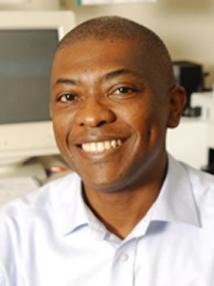Comprehensive Cancer Imaging Centre
Research
The Comprehensive Cancer Imaging Centre fosters interdisciplinary research in cancer imaging - combining strengths in probe design with synthetic chemistry, probe validation in pre-clinical models, analytical software development, signal processing/visualisation, and clinical validation to translate biomedical discoveries into health benefits in the short to medium term, particularly in the areas of cancer drug development and therapeutic management of patients. Our strategic research goal is to develop imaging probes and visualisation tools to support three areas of translational cancer research:
- Early and objective assessment of drug response with emphasis on intracellular cell signalling processes including proliferation, MAP kinase pathway/PI3 kinase pathway activities and apoptosis.
- Improved characterisation of tumour microenvironment and drug resistance phenotype with emphasis on invasion/metastasis, hypoxia, angiogenesis and drug transport to provide a better understanding of tumour biology, heterogeneity, and resistance phenotype in living subjects.
- Improved visualisation of tumours to aid detection.
The Centre supports different imaging approaches for cancer research. The major imaging modality ispositron emission tomography (PET). We also develop new magnetic resonance imaging and ultrasound (MRI and US) imaging methods. These activities permit:
- Discovery of novel PET radiotracers, and MRI and US contrast agents.
- Development and application of microfluidic technology to radiochemistry and nanoparticle synthesis.
- Development of new research focused at end-stage radiolabelling of small molecules, peptides and peptidomimetics.
- Development and validation of new probes for pharmacodynamics and in vivo functional genomics of drug resistance in pre-clinical models and testing in cancer patients.
- Development of novel, mathematical modelling approaches, spatial and kinetic filters, motion compensation and registration methodologies, and integration of these into software for parametric reconstruction.
Finally, we aim to train the next generation of multi-disciplinary cancer imaging scientists, providing relevant integrated MRes (Bioimaging Sciences) and PhD training opportunities for collaborations across the College.
Biology
Closely linked to the chemistry section of the Centre, validating probes, developing in vivo pharmacodynamic imaging of novel anticancer agents and molecular imaging of in vivo functional genomics of drug resistance.
Chemistry
A number of medicinal and synthetic chemistry projects including microfluidics, nanoparticles, microbubbles, plus new probe development using 18F, 11C and 68Ga.
Clinical
Assessment and validation of novel probes and proof of principal studies in man are an important part of the work of the Centre.
Signal Processing and Computation
Development of methodology for mathematical modelling, spacial and kinetic filters and motion compensation and registration.
Collaborators
Prof Herbie Newell, University of Newcastle, Imaging and drug development, 2009
Eyal Gottlieb, Beatson Institute, Imaging and metabolism, 2008
Dr Spiros Linardopoulos, Institute of Cancer Research, Imaging and drug development, 2006
Prof Charles Coombes, Imperial College London, Translational imaging and breast cancer, 2002
Paul Workman, Institute of Cancer Research, 1998
Guest Lectures
The future of imaging: developing tools for monitoring response to therapyThe Sir Mackenzie Davidson Lecture, The British Institute of Radiology, London, 2009
Research Staff
Brickute,D
Research Student Supervision
Mapelli,P

